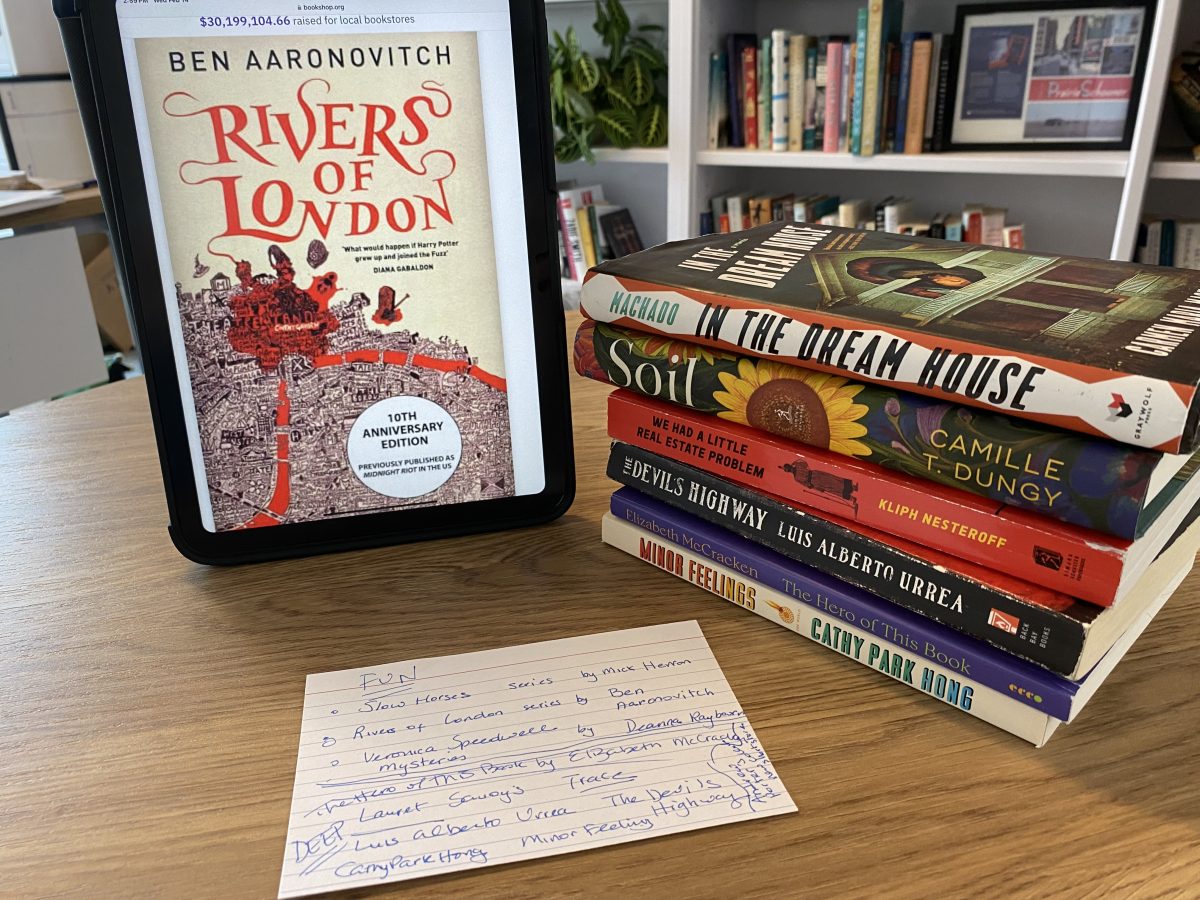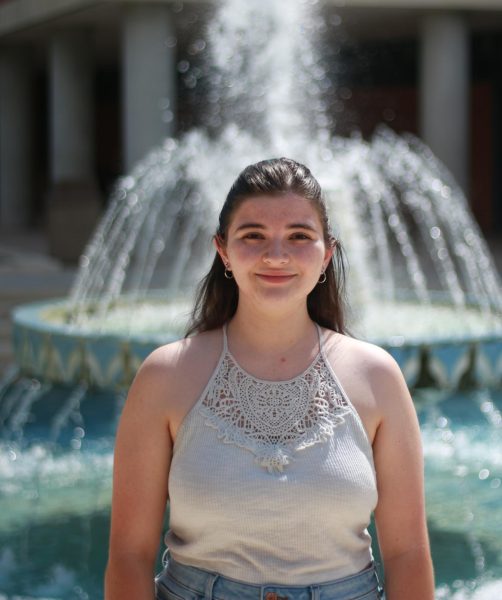Trinity University’s English professors have encountered a wide range of literature in their studies and in their work. Here, three share their book recommendations that reflect their passion for their fields and personal preferences in literary arts.
Willis Salomon, whose scholarship primarily focuses on early modern English poetry, recommended authors and novels such as Iris Murdoch’s “The Green Knight,” Martin Amis’ “London Fields,” Tessa Hadley’s “The Past” and John Banville’s “The Infinities.”
Salomon states that he has meaningful experiences with these novels because they experiment with written form, heightening the emotional impact of the stories and the characters’ journeys. He hopes that potential readers will get the same impact from these books that he does.
“I think I want to say not so much that they experiment with form although for example, ‘The Alley Smith Hotel’ does, but they experiment with conventional ways of describing character and mental states and action in ways that are both unusual and in my mind, hit it right on the money,” Salomon said, “They all give you lots of words to process. I mean, I don’t just mean length, but a kind of density.”
Victoria Aarons, English professor specializing in Holocaust literature, recommended several books that she has encountered in her field of study. These works included Primo Levi’s “Survival in Auschwitz,” Anne Michaels’ “Fugitive Pieces” and the short stories of Bernard Malamud.
She stated that she recommends these books and authors because they highlight the nuances of the Holocaust and because of their accomplishments as literary art. Aarons used a short story by the mid-century American writer Grace Paley as an example of what she considers quality literary art.
“When I just really want a good sentence, I’m thinking of a Grace Paley short story called ‘Enormous Changes’ when at the last minute … one character says to another, ‘I like your paragraphs better than your senses.’ And what he loves is the sheer sound of the words, the sound of the language that draws you in,” Aarons said. “I think about that a lot when I want to pick up something that I just want to hear the voice that comes alive on the page.”
Aarons also recommended several authors that she enjoys outside her field of study, stating that she also encouraged reading for pleasure to keep up the reading habit and to simply relax and preserve mental health. For pleasure, she recommended “Straight Man” by Richard Russo, as well as the works of Susan Hill, Louise Penny, Agatha Christie and Edgar Allan Poe.
Despite being in the same academic department, Kelly Grey Carlisle, who teaches creative nonfiction writing, views her favorite books in a different way from other English professors. Specifically, she sees books in their field of study as real stories that artistically reflect real-world issues.
Carlisle recommended a variety of creative nonfiction books she has encountered in her studies as well as her favorite books she reads for pleasure.
“I think, first of all, for me, it’s always going to come down to the quality of the writing, and so I would think of compelling characters that are really well-drawn,” Carlisle said. “I’m really interested in nonfiction that takes different topics and smashes them together in unusual ways and helps us see both in a new light.”









Kelly Grey Carlisle • Feb 23, 2024 at 8:51 am
Since my book recommendations didn’t actually make it into the article, they are:
A chance to meet the author:
The Hero of this book by Elizabeth McCracken, one of the Stern authors who will be reading Thursday 29 Feb at 8PM. A beautiful, dreamy novel of loss and London.
Pleasure reading:
Ben Aaronovitch’s Rivers of London series, the first one of which is Midnight Riot — what happens when a detective story smashes into mythical beings and ghosts from London’s storied history?
Mick Herron’s Slow Horses/Slough House series: MI5 misfits and spies on adventures–dark, darkly funny, ironic, and brilliantly characterized.
Creative nonfiction recs:
In the Dream House by Carmen Maria Machado — a story of love, terror, and queerness told in an extraordinary form.
Soil by Camille Dungy – a wonderful series of essay-like chapters about Blackness, Black joy, gardening, and nature.
The Devil’s Highway by Luis Alberto Urrea. I could teach a whole course on this work of genius about the land at the Border, the people who cross it, and the people who patrol it.